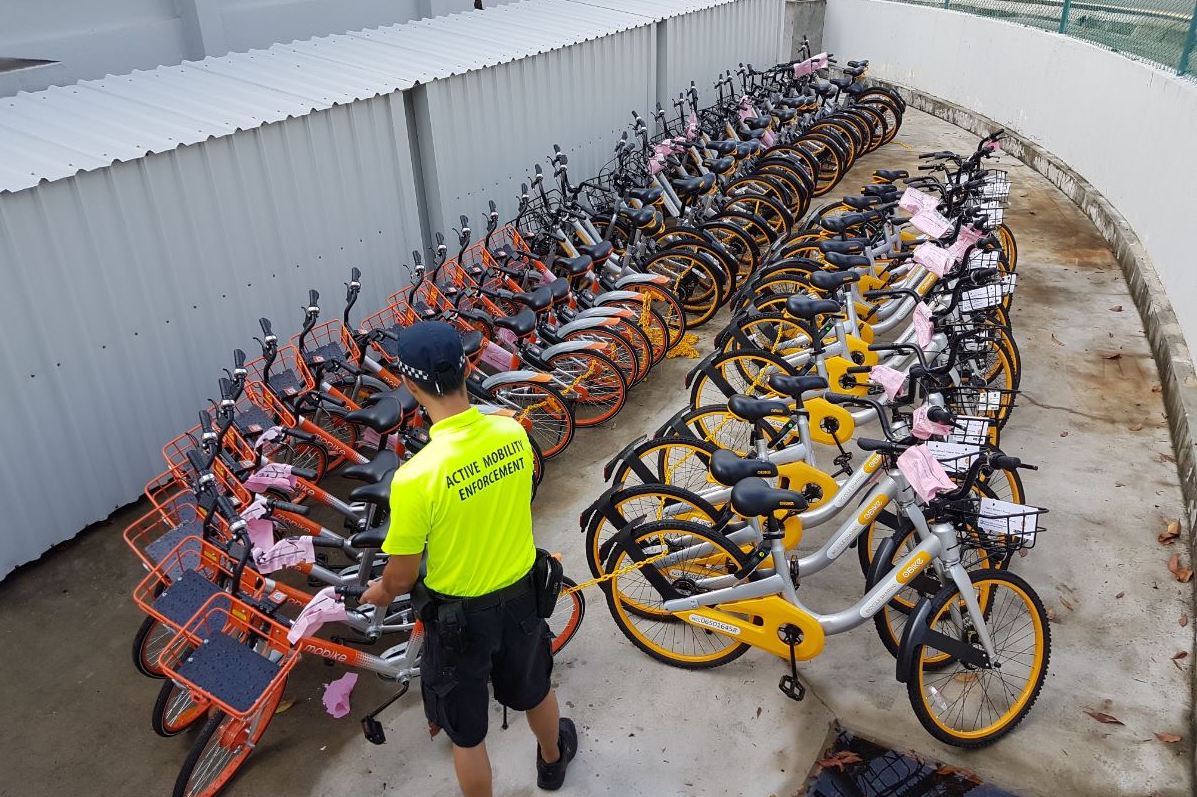
Image credit: LTA.
In recent months, Singapore has been hit by a silver (and yellow and orange) tsunami – the bike-sharing phenomenon has come to town. These bikes have become so ubiquitous that the Land Transport Authority (LTA) found itself shelving plans for a bike-sharing scheme that it had been developing since 2014.
In response to this influx of bikes and complaints of their misuse, the Land Transport Authority says it would impound bikes that aren’t parked at previously constructed bike stands or “designated parking spaces.” Such a heavy-handed response, borne out of a desire to shoehorn this growth into existing policy, is infeasible and increases business costs while reducing consumer welfare.
It certainly does nothing to burnish Singapore’s attempt to be known as an innovative country.
How feasible is impounding?
Suppose the three bike-sharing companies in Singapore operate about 5,000 bikes with an assumed two percent miscreant rate. That gives us 100 bikes that need to be picked up on a daily basis. Given that the average LTA van can fit in a maximum of five bikes, this gives us 20 trips a day to be made.
Unless the LTA plans to increase the size of its staff dramatically – especially since recent announcements by Ofo and oBike that they intend to increase fleet sizes – it is hard to see how is this an effective form of policing.
Increased costs for bike-sharing companies
Impounding these bikes raises the operating costs of bike-sharing companies as they’ll now have to devote manpower to retrieving and redistributing them, notwithstanding a potential financial penalty. The opportunity cost of this additional expenditure is the expansion of their fleet and a longer runway to profitability due to the tougher policy environment.
Less choices for riders
This regulatory focus on “designated parking spaces” in fact fails to account for changes in rider behaviour caused by the rapid increase in the supply of bicycles at much lower cost per use. Shared bikes serve a need in “last-mile transport” from the bus stop/train station to the final destination, and provide an additional option for riders to travel distances that are too far to walk but too near to take the bus for.
Would-be riders could find it more difficult to find these bikes when they are needed. Furthermore, additional effort must be made to find a parking spot, thus negating the flexibility offered by the bike-sharing.
The ball is in the LTA’s court
The bike-sharing companies, specifically Ofo and oBike, have commendably taken the initiative to nudge riders toward better behaviour through a mixture of reminders and credit systems. However, a lack of clarity lies at the heart of this debate – what is an appropriate place to park a bike? In fact, are there enough of such spaces to accommodate this influx?
Only the LTA has the authority to answer these questions and make the necessary changes to its policy. It could be as simple as working with the bike companies to designate additional parking spaces near areas where people congregate, such as bus stops. Instead of impounding, LTA could also report errant bikes to the companies who could track the last user and penalize such behaviour.
A Channel NewsAsia report tells us that the LTA is indeed reconsidering its policy. I hope they will respond quickly with a win-win solution that doesn’t crimp consumer choice.
This post Opinion: Singapore must rethink its bike-sharing policy appeared first on Tech in Asia.
from Tech in Asia https://www.techinasia.com/singapore-bikesharing-policy
via IFTTT
No comments:
Post a Comment